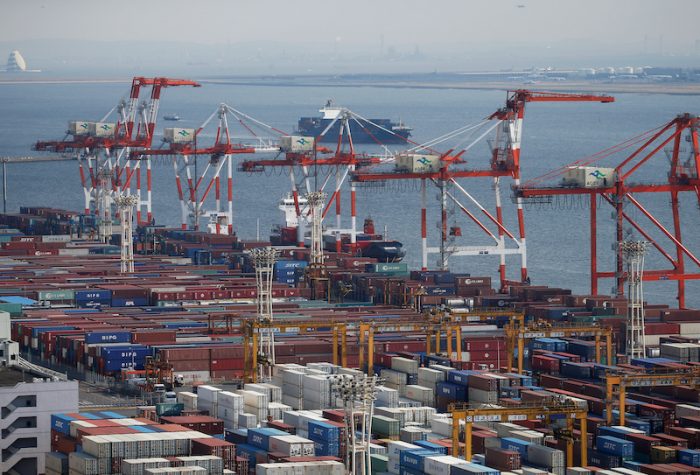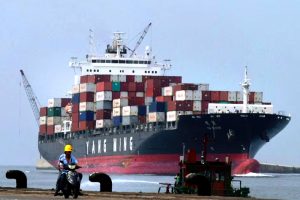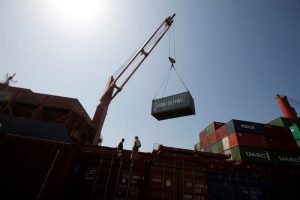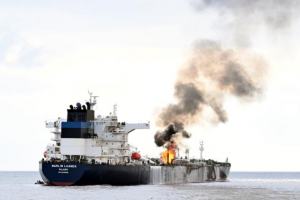German and Japanese shipping firms will continue to divert vessels around the Suez Canal through to the new year to avoid the threat of militant group attacks in the Red Sea.
A spokesperson for the German container shipper Hapag-Lloyd said a further assessment would be made on Tuesday, while Mitsui OSK Lines and Nippon Yusen, Japan’s largest shipping companies, also said their vessels with links to Israel were avoiding the Red Sea area.
Shipping companies including Hapag-Lloyd and Denmark’s Maersk earlier this month stopped using Red Sea routes and the Suez Canal after Yemen’s Houthi militant group began targeting vessels, disrupting global trade.
Instead, they re-routed ships around Africa via the Cape of Good Hope to avoid attacks, charging customers extra fees and adding days or weeks to the time it takes to transport goods from Asia to Europe and to the east coast of North America.
Also on AF: China Told to Expect More Heatwaves, Extreme Weather in 2024
The situation remains uncertain and shipping companies are taking different approaches.
Maersk is planning to sail almost all container vessels travelling between Asia and Europe through the Suez Canal from now on while diverting only a handful around Africa, a Reuters breakdown of the group’s schedule showed on Thursday.
France’s CMA CGM is also increasing the number of vessels it has travelling through the Suez Canal, it said on Tuesday.
Shares in Hapag Lloyd were up 1.1% on Friday. Shares in Maersk were up 1.8%. Shares in shipping companies have risen since the crisis began on expectations that longer routes will result in higher freight rates.
CMA CGM is among container lines to have introduced surcharges due to the re-routing of vessels, adding to rising costs for sea transport since the Houthis started targeting vessels.
Mediterranean Shipping Co’s container ship United VIII was attacked while transiting the Red Sea, it said on Tuesday. The Houthis also on Tuesday claimed to have fired missiles at the vessel, without saying it was struck.
The Suez Canal is used by roughly one third of global container ship cargo, and re-directing ships around the southern tip of Africa is expected to cost up to $1 million extra in fuel for every round trip between Asia and Northern Europe.
- Reuters with additional editing by Sean O’Meara
Read more:
Cargo Rates Soar as Firms Assess Bid to Protect Red Sea Ships
Shipping Firms Chart Return to Red Sea Amid US Military Push
Chinese Car Exports to EU Seen Hit by Red Sea Ship Attacks
Red Sea Attacks Disrupt Key Asia-Europe Sea Trade Route
























